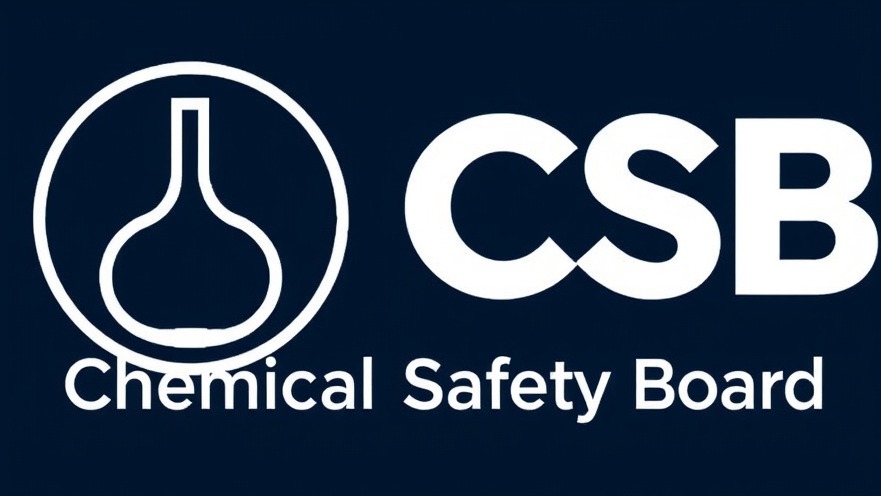
Why the Chemical Safety Board is Essential
The Chemical Safety Board (CSB) has served as a crucial sentinel for petrochemical safety since its inception in 1998. It operates independently from regulatory bodies like the Environmental Protection Agency (EPA) and the Occupational Safety and Health Administration (OSHA), allowing it to conduct thorough investigations into chemical accidents without institutional bias. For residents of Texas, especially those near the Gulf Coast's petrochemical corridor, the board has been a voice safeguarding their rights and welfare.
The Recent Chemical Accident That Shocked Texas
One of the most notable events investigated by the CSB was the 2019 fire at the Intercontinental Terminals Company in Deer Park, Texas. This colossal incident not only triggered multiple health advisories but also emphasized the pressing need for oversight in the petrochemical industry. According to reports, more than 15,000 residents were impacted by the hazardous smoke and pollutants released into the air. The CSB’s investigation revealed significant shortcomings in safety protocols and management practices, underscoring the necessity of its existence.
Debunking Myths: Does the CSB Duplicate Efforts?
The Trump administration's assertion that the CSB’s functions overlap with those of the EPA and OSHA has raised eyebrows among public safety advocates. This claim overlooks the unique role the CSB plays in accident investigation and safety recommendations. While the EPA and OSHA enforce regulations, the CSB solely investigates incidents and shares findings with the public and industry, illuminating lessons learned that could save lives. A withdrawal of funding for the CSB could create gaps in safety protocols and accountability that other agencies cannot effectively fill.
The Ripple Effect: What This Decision Means for Texans
Eliminating the CSB could have dire consequences for communities in Texas and beyond. The petrochemical industry is a major economic driver for the region, but this comes with inherent risks. Without an independent board to oversee safety practices, the potential for industrial accidents increases, jeopardizing jobs, public health, and environmental integrity. Residents may find themselves more vulnerable to accidents caused by corporate negligence without the checks and balances provided by the CSB.
Future Predictions: The Impacts of Inaction
Looking ahead, the proposed defunding of the CSB may embolden corporations to avoid investing in proper safety measures as they may feel less scrutinized. Should the board cease its operations, this could lead to an increase in workplace incidents across Texas and other states, resulting in a cycle of preventable tragedies that could be avoided with appropriate oversight. Environmental justice advocates warn that such failures disproportionately affect marginalized communities, making the elimination of the CSB not just a public safety issue, but a matter of equity.
Get Informed: Why You Should Care
As key stakeholders in regional health and safety, the implication of losing the CSB stretches beyond just petrochemical workers. College students, families, and local communities need to engage with this critical issue, recognizing how essential independent oversight is for public safety. Informed citizens can advocate for their interests by voicing their concerns through public forums, contacting their representatives, and supporting non-profit organizations focused on chemical safety.
Amid changing regulations, it is crucial for Texans of all demographics to stay updated on developments regarding the CSB. They remain the eyes and ears that evaluate safety standards and work proactively to prevent chemical-related catastrophes.
If you care about building safer communities and protecting future generations, stay tuned to local news outlets for updates on this evolving issue.
 Add Element
Add Element  Add Row
Add Row 



Write A Comment